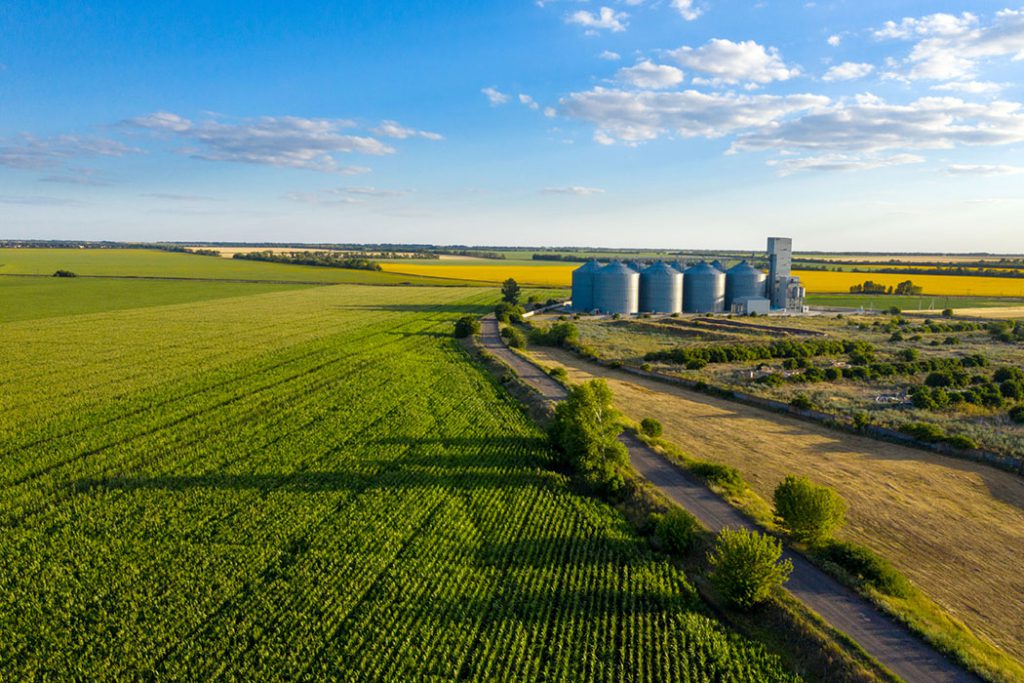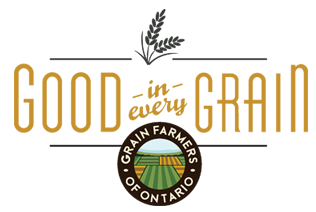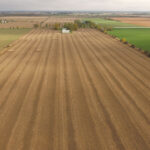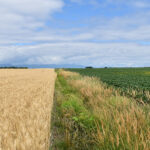A look at a year on a grain farm!

What work is done on a grain farm throughout the year? Let’s take a look at a year on a grain farm!
At Good in Every Grain, some common questions are about the many jobs done on a grain farm. Let’s break it down into the seasons and see what main jobs grain farmers focus on each season.
Year on a Grain Farm: Winter
Do farmers work in the winter? is one of the most common questions we get! Winter is the time of year where #YourFarmers spend a lot of their time planning and preparing for their future year. This is the time of the year where they sell their grain, calculate and purchase seed, fertilizers and pesticides amounts. They only purchase what they need for the year. This is figured out through soil tests and calculations to only use the right amounts of seed, fertilizers and pesticides. Farmers will also prepare and maintain their equipment and prep their planting equipment for spring. Farmers will also meet with their accountants, bank managers, grain marketers and agronomists to make decisions for the upcoming year. Lastly, farmers will also attend meetings with fellow farmers and agriculture organizations to see the newest innovations in grain farming. It is the season for planning, preparation and making business decisions.
Year on a Grain Farm: Spring
Spring is arguably one of the busiest times of the year! Farmers will begin planting Ontario grains- barley, corn, oats, soybeans and wheat. They might cultivate and prep their land (called tillage) or use conservation or no-tillage practises to get the ground ready. Farmers will also apply fertilizers or pesticides (if needed) and plant their grains into ready soil. Soil conditions must be nearly perfect for planting. The soil must be not too dry or wet and loose enough for the baby plants or seedlings to grow through. A lot of decisions in spring are already preplanned out. Fields are already preplanned as to what will be planted and any fertilizers or pesticides are already preplanned and purchased in the right quantities to ensure the right amounts are being put onto the fields. Spring is the start of the year’s fieldwork, with many farmers using tractors, planters, sprayers and other pieces of equipment to plant Ontario grains.
Year on a Grain Farm: Summer
Summer is when Ontario grain farmers are watching and keeping a close eye on their crops to ensure they are staying healthy. If their fields are looking sick, or if a pest (weeds, diseases or insects) are going to threaten and destroy a crop, they will be sprayed with fertilizer or a pesticide respectfully.
Farmers will also begin harvest by harvesting winter wheat. Winter wheat will be planted in the fall, where it hibernates under the snow in the fields over winter and will be harvested in the summer months (July-August). After winter wheat harvest, farmers may also plant cover crops and prepare for fall harvest. Summer is a busy time of the year with ensuring Ontario grains are growing healthy, and starting harvest!
Year on a Grain Farm: Fall
Fall is the second busiest time of the year and starts off with fall harvest. Ontario’s barley and oats are harvested in September with Ontario’s soybeans and corn harvested throughout the months of October, November and even into December.
After harvest, some farmers will complete fall tillage if their soil needs to be tilled. Tillage can loosen up the soil if there is a lot of compaction. Farmers will also plant cover crops and winter wheat. Winter wheat is planted into harvested soybean fields before the snowfalls. Farmers will also spread manure and take soil samples of their fields in the fall. Soil sampling is a sustainable practice that takes dirt samples from fields and these samples are tested for the nutrient quality, PH and acidic levels and other characteristics of the soil. These sample results will be sent back to the farmer to help them understand what nutrients are in their fields already, what nutrients may need to be added via fertilizers and the overall health of the soil after a year of crop growth. By collecting soil sample data #YourFarmers can understand how their soils are healthy, and what adjustments need to be made before planting grains in the spring.



